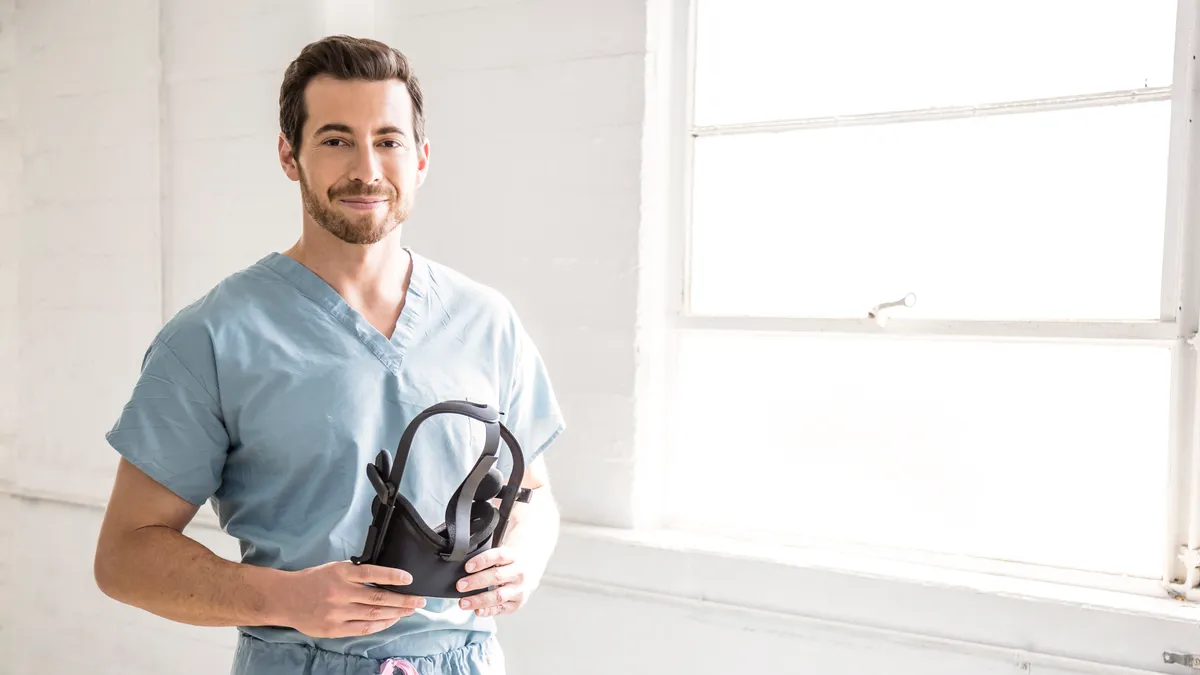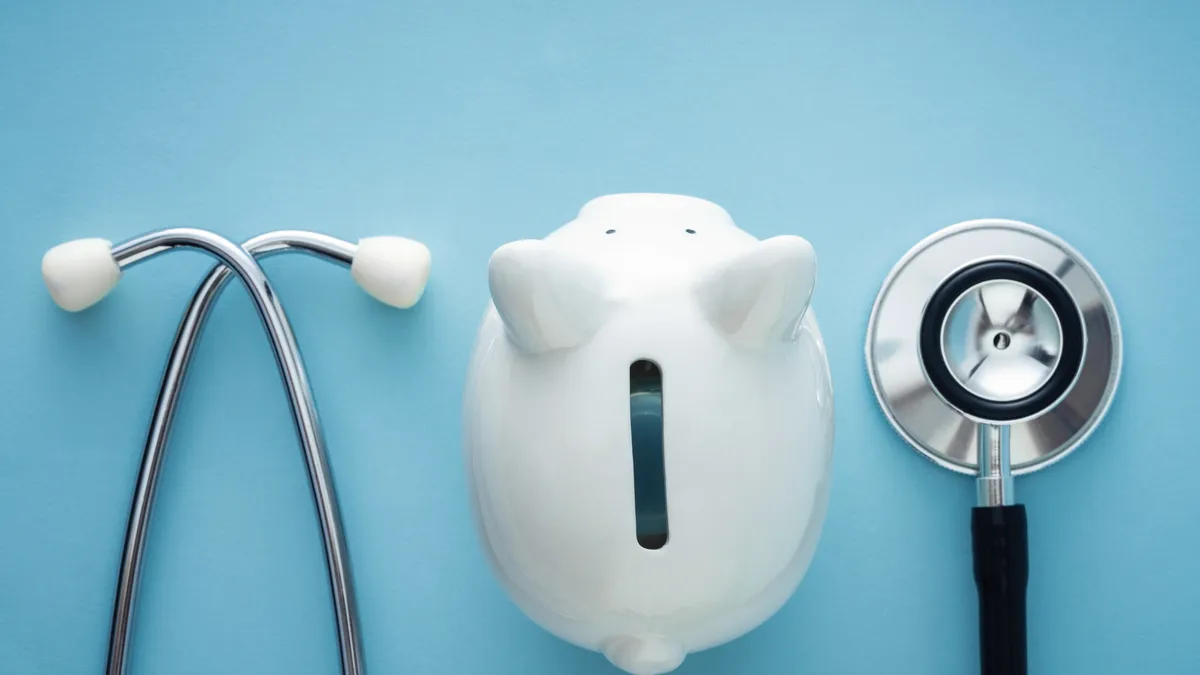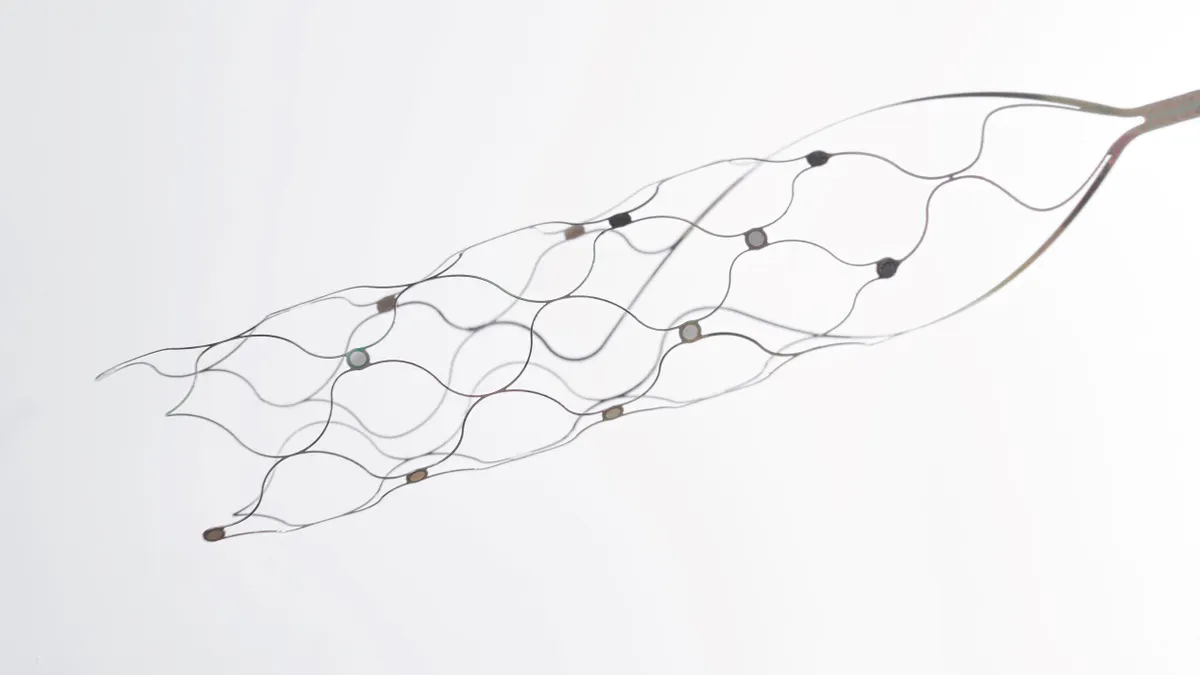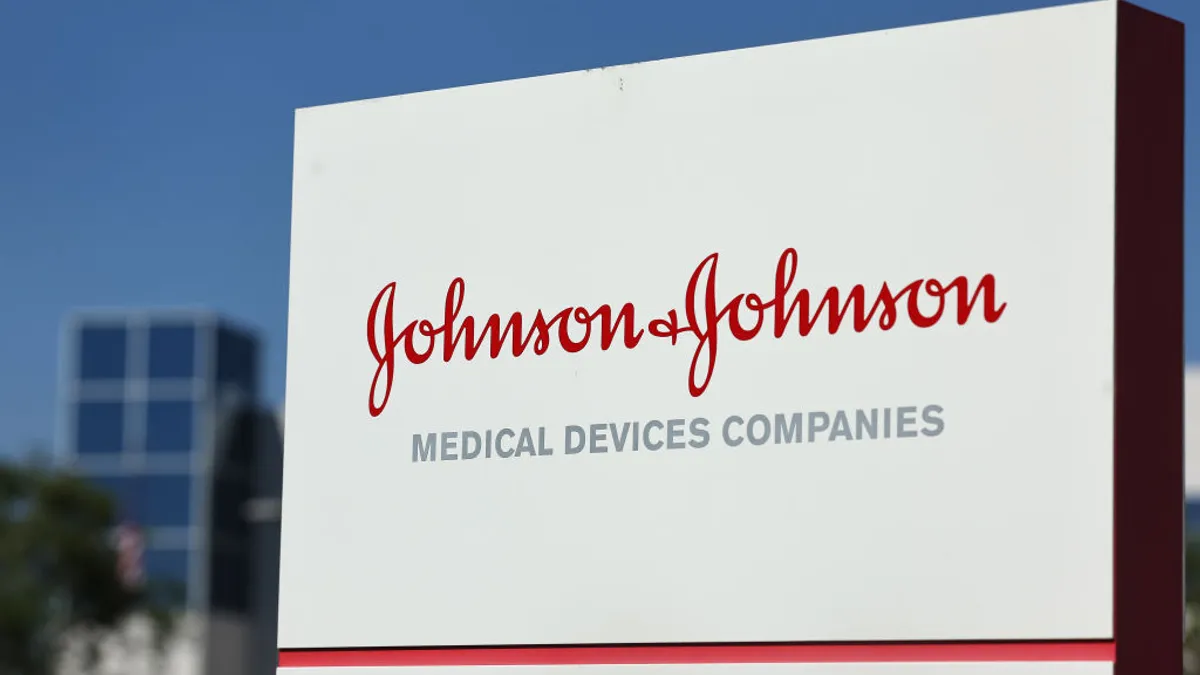Osso VR Founder and CEO Dr. Justin Barad was at the Venetian convention center in Las Vegas last Thursday for the American Academy of Orthopedic Surgeons’ annual conference, when one of the company’s investors told him about a potential problem with Silicon Valley Bank.
The 39-year old bank, where, like many startups, Barad’s company held all of its assets, was collapsing. San Francisco-based Osso VR, which makes virtual reality training tools for manufacturers of orthopedic devices and for medical residency programs, needed to find a way to pay its 180 employees.
“This is obviously a huge shock and a very scary thing to go through — something that nobody expected,” Barad said in an interview.
The CEO said the reaction to the news at the orthopedic conference was more muted than the loud buzz, signs of panic and incessant smart-phone checks that reports say shook the startup-heavy SXSW conference in Austin, Texas, the same day.
“You weren't seeing that here,” Barad said. “Within the [medical] device ecosystem, it's probably limited to these mid-size startups like us — health technology companies that tend to bank with SVB, especially anything in San Francisco or the Bay Area.”
SVB’s collapse was as swift as it was unexpected, and it left the many startups that had banked with it scrambling for support. On March 8, SVB announced that it lost nearly $2 billion selling U.S. treasury bonds and mortgage-backed securities. The next day, following an unsuccessful attempt to raise capital, the bank reportedly sought a buyer. On March 10, California regulators shut it down.
Preparing for the worst
Barad said his initial reaction to the news was concern and uncertainty over what to do next.
“There was a variety of recommendations from our board investors and advisors: everything from ‘just don't do anything, you're just going to make it worse’ to ‘pull your money out immediately,’” Barad said.
Ultimately, the company made the decision to withdraw its deposits from SVB, but got “caught up in the freeze,” uncertain how it would make the next week’s payroll.
Barad said experience working through past crises, and to an extent, his training as an orthopedic surgeon, helped him manage through the turmoil. Knowing how to deliver bad news and deal with difficult situations helped him respond in the moment.
He also credited the company’s finance team, led by CFO Josh Willeford, who “didn’t sleep for three days, [left] no stone unturned, scratching and clawing to make sure everyone was safe.”
Willeford believed that the majority of the company's capital would be safe in the longer term, but the firm’s short-term viability was in question. He spent six hours on the phone with Federal Deposit Insurance Corporation representatives over the weekend to discern how much of Osso VR’s deposits would be released back to the company.
While Willeford scrambled to lock down a source of cash, the company’s investors, outside investors and even other startups reached out. One of them, Brex, a financial services firm aimed at startups, was offering loan programs.
The panic was short-lived, though, and Osso VR was able to open new accounts at other banks over the weekend.
“You’re seeing a generation of startups and founders going through… a pandemic, economic downturn, social unrest, once-a-decade bank failures,” Barad said. “Both the team and myself are, at this point, unfortunately accustomed to crisis management. And I think there's just a lot of trust with everything that we've been through together, and there's generally been an ever increasing focus on transparency and how we approach bad news.”
A big relief
Relief came on March 12 when the U.S. Treasury, the Federal Reserve and the FDIC issued a joint statement telling depositors they would be able to access their funds starting the next day and that all cash held at the bank, even beyond the FDIC’s normal $250,000 limit, was safe.
“There was just an intense sense of relief,” Barad said.
As Willeford worked to pull Osso VR’s money out of SVB on March 12, the bank’s website was overloaded, and he spent most of the day refreshing browsers to be get his transfer order approved. He eventually succeeded.
The company was able to account for all funds and its payroll wasn’t affected.
Communication was key during those suspenseful five days, the CEO said. Once the team had confirmed on March 10 that SVB was being closed by regulators, “we told the whole company that the bank is shut down. We think we're going to get our funds back. We don't know if that's 100% and payroll is at risk. We think it's going to be okay. We're pursuing every available option over the weekend,” he said.
“I have about 30 emails and text messages from an unidentified FDIC official saying ‘this is what's going to happen,’ and every single one was different, Barad added. “You have hundreds of really respectable people sending along information… and everything was different. So we really didn't want to communicate anything until we knew for sure.”
The next update the company shared was on March 13 after it had confirmed the FDIC news. Barad said he was happy with that approach, instead of doing a “play by play,” trickling out conflicting accounts of SVB’s liquidity and the company’s progress in reclaiming its cash.
What’s next?
Going forward, Barad said Osso VR will work with two banks, one for longer-term assets, and another for working capital, including payments to employees and vendors.
“It’s not a secret, and it wasn’t perceived as a negative, but SVB had, if you did all of your banking with them, really good terms for loans and other programs,” Barad said. “It did lead to this situation that nobody foresaw, that if something did happen, you were just very exposed.”
“They've helped us get to where we are, so we really hold no ill will towards them, but obviously this was a scary experience,” he said.
Barad said he expects no long-term effect on his company from SVB’s troubles. Having raised a $66 million series C round in March 2022 — right before the financial downturn — Osso VR is in a strong position to fund its future, he added.
“We were able to prepare ourselves, but many other companies were not as fortunate,” he said.


















